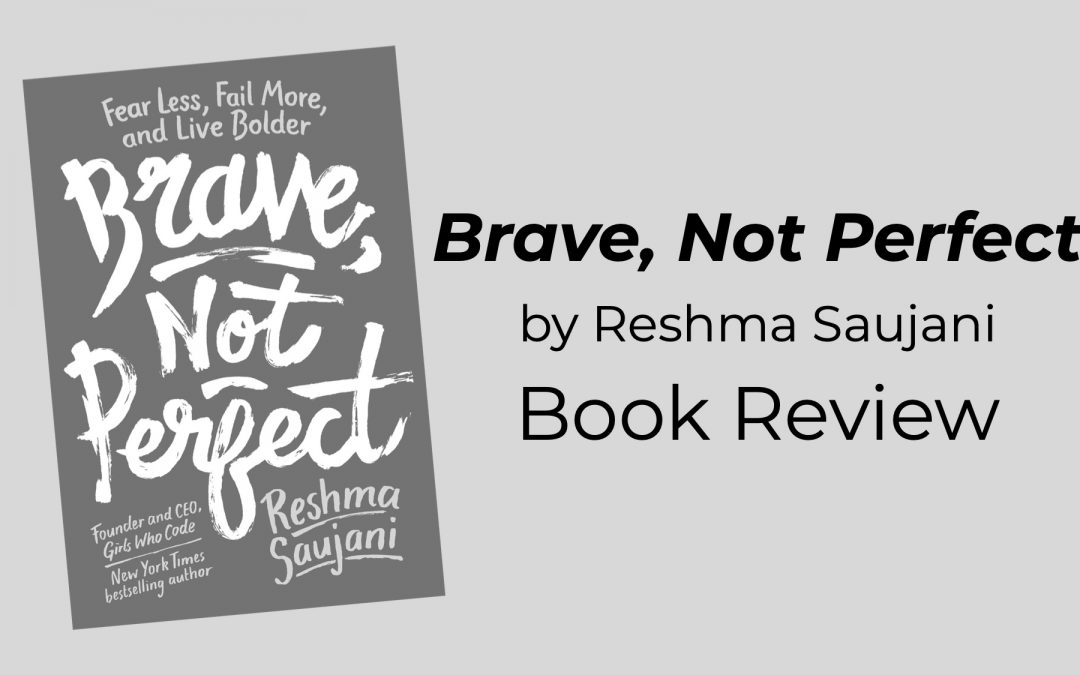So many of my clients — both women and men — get trapped by aspiring to perfectionism. “Brave, Not Perfect,” by Reshma Saujani addresses how the drive for perfection evolves, its issues, and what to do instead (spoiler alert: it’s bravery!).
You’re not perfect? According to Reshma Saujani in her book, “Brave, Not Perfect,” that’s a good thing. What a relief! #businessbookclub #perfectionist #brave Click To TweetMy biggest takeaways from Saujani’s book are:
- Girls (particularly) are socialized to be perfect
- It’s hard to break free of perfectionism
- Bravery is possible for everyone
- Mindset shifts help us move toward bravery
- Failure will happen (so practice resilience)
Girls (particularly) are socialized to be perfect
Perfectionism isn’t a uniquely female issue, but society does message girls more frequently and insistently that they should be, “nice, polite, and polished,” in Saujani’s words. Continuous reinforcement of these messages, along with an assumption that girls are more vulnerable and less resilient than boys, steers girls to perfect what they’re already doing well rather than take risks on new endeavors.
Over time, this drive toward perfection and needing to please others leads girls (and women) to pretzel themselves in order to accommodate other people. And because they’re mirroring other people, they’re less likely to be fully present in the world in an authentic way.
It’s hard to break free of perfectionism
Nobody likes failing, but perfectionists build their worlds around not failing. Perfectionists’ extreme efforts (like overstudying for a test or pulling an all-nighter before a presentation or spending hours creating an Instagram post) do tend to pay off, so it’s hard to break the cycle.
When women grow up, top-notch results are still expected, but it’s less cool to be seen as a perfectionist. As Saujani puts it, “work hard…but make it look easy.” While the emphasis shifts away from perfectionism itself, the focus on appearing effortless actually feeds perfectionist tendencies.
Bravery is possible for everyone
Bravery, the key to overcoming perfectionism, is taking an unpopular stand, speaking out, going against the flow, doing something unexpected, or taking a chance, knowing you might fail.
Because it’s a skill that develops with practice, we can all learn to become brave. And because we’re all different, what’s daring and brave for you might be different than how I define it for myself. And that’s okay.
Mindset shifts help us move toward bravery
Moving to a mindset of possibility and courage can help us in our quests for bravery. Knowing that workaholism is unhealthy and depletes us helps us make better choices, including those that move us to become brave. These mindset shifts and choices are habits that must be practiced daily.
Failure will happen, so practice resilience
Perfectionists don’t get a lot of practice in resilience, since they’re so busy protecting themselves from failure. The great news is that you can learn to bounce back by being brave. As we learn to celebrate our failures — and learn from them — we become more resilient. So we can take risks and be brave again.
There are so many great lessons in, “Brave, Not Perfect” for any person who’s ever tilted toward perfectionism…or who’s trying to become more brave. Learn more by picking up your own copy (and one for your practically perfect friend) today!
How have you been brave and imperfect? Tell us in the comments below.

